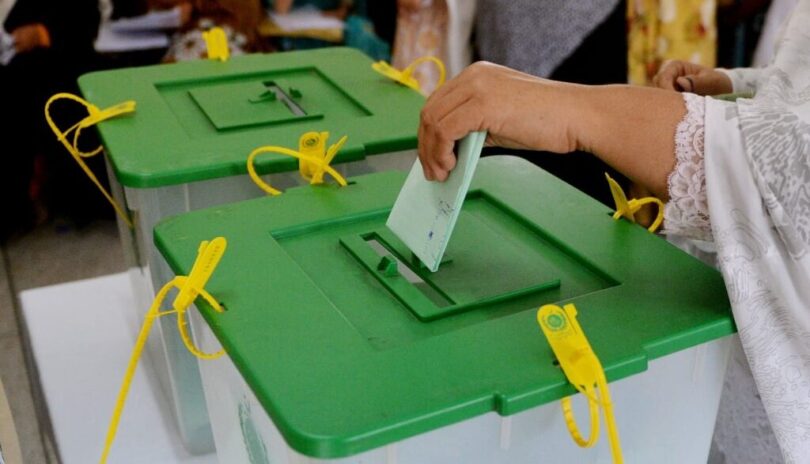As the election season commenced, the election campaigns of the contesting political groups are currently in full swing. The contesting parties and leaders are in a race to attract the public and grab votes by using all plausible guises, emotional slogans convincing phrases, and publicity strategies to secure their victory in the crucial polls. Recently, the Istehkam-e-Pakistan Party (IPP) President Abdul Aleem Khan announced that following a victorious election outcome, his government would take on the responsibility of covering electricity bills for up to 300 units. He also reiterated the party’s commitment to serving the people, transcending political boundaries, and providing employment and recreational opportunities for the youth at the constituency level. Meanwhile, the Pakistan Muslim League-Nawaz (PML-N) has crafted a comprehensive 9-point agenda to steer its election campaign, that encompasses strategic measures to reduce government and administrative expenditures, increase income, enhance productivity, and introduce reforms to the tax system. The PML-N’s agenda includes initiatives to address the rising costs of energy, electricity, and gas, and the inclusion of reforms for government institutions incurring losses including agriculture, judiciary, and the justice system in the country. Weeks ago, the PPP Chairman announced an increase in the salaries of government employees, upgradation in minimum wage, and a provision of assistance under the BISP program. Earlier, the PTI leadership conceived the idea of 5 million jobs, several hundred thousand homes for low-income households, and the creation of a better Pakistan on the model of Riasaat-e-Madina but failed to implement its manifesto after coming to power.
Historically, the Party’s manifesto, leaders’ legacy, and emotional slogans play a crucial role in election campaigns as those concise, memorable phrases encapsulate a candidate’s message, party’s vision, or promises with its voters and the general public. The party’s electoral signs and slogans aim to resonate with voters, create an emotional connection, and leave a lasting impression. Thus, manifestos together with slogans complement broader campaign themes, reinforcing key talking points and serving as a rallying cry for supporters.
Although slogans are powerful tools, they ideally reflect the candidate’s authentic vision and party’s pro-public legacy if they are supported by substantive policies or actions of the leaders’ which absolutely disappeared in the case of Pakistani political groups and their high-ups. Over the decades, Pakistani leaders used unreal and imaginative themes to exploit public needs and play with the public psyche paving their way to the Parliament and power. This is the reason that the PPP could not provide the public with Roti, Kapra, and Makan in the past five decades, and other political groups also traded the basic needs of the poor during the election season and often used to forget the masses until the next polls.
Exploitation of public needs in politics often occurs when politicians prioritize their agendas, interests, or those of specific groups over the genuine needs of the public they serve. This might involve promising solutions or policies to address pressing issues without genuine intent or action, using public needs as a tool for political gain, or neglecting certain crucial needs and ground realities altogether. Often politicians use public money to boost their politics and attract voters through the distribution of development funds, and provision of undue subsidies, etc, as IPP President Aleem Khan announced regarding the provision of free of cost electricity up to 300 units, the same offered by the Hamza Shehbaz government in Punjab last year before provincial polls and the PTI extended massive subsidies on fuel and electricity during the last year of its government in the country. All those measures were dual-edge weapons and sweet poison for the national economy, the country, and the public who paid a heavy price for those politically motivated policies of the past rulers.
Addressing the exploitation of public needs in politics requires transparency, accountability, and genuine commitment from public leaders to prioritize and address the concerns and well-being of the public. It also involves civic engagement, holding representatives accountable, and advocating for policies that genuinely serve the public’s interests. Meanwhile, political groups and leaders must weigh their policies vis-a-vis their promises to the public vis-a-vis the ground realities and their intent to service delivery to the masses so, that poor hearts do not scratch if their leaders betray them in the future.







